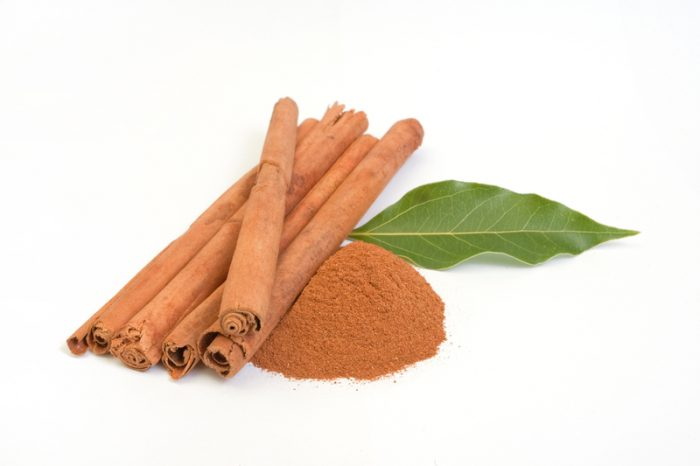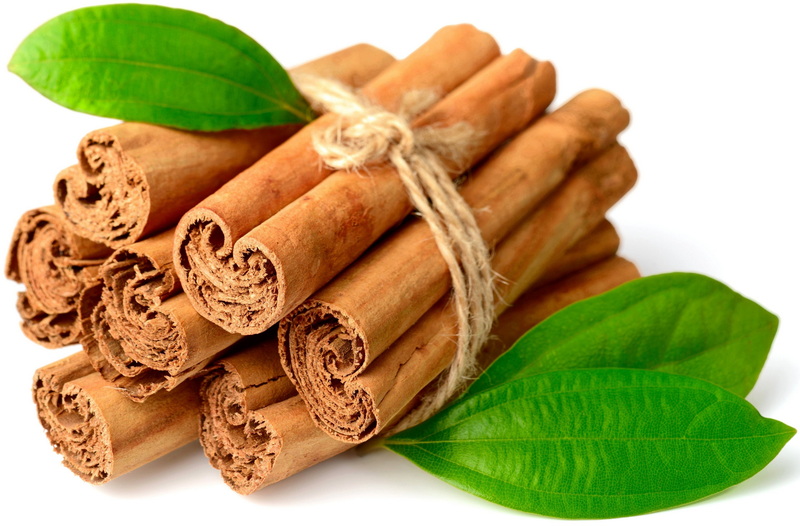Content Menu
● Introduction to Cinnamon Varieties
>> Cassia Cinnamon
>> Ceylon Cinnamon
>> Cinnamon Bark Extract
● Health Benefits of Cinnamon Bark Extract
● Comparison with Other Spices
>> Turmeric vs. Cinnamon Bark Extract
>> Ginger vs. Cinnamon Bark Extract
>> Cinnamon vs. Cloves
● Applications of Cinnamon Bark Extract
>> Culinary Uses
>> Cosmetic Applications
● Potential Risks and Precautions
● Future Research Directions
● Conclusion
● FAQs
>> 1. What is the difference between Cassia and Ceylon cinnamon?
>> 2. How does cinnamon bark extract compare to whole cinnamon in terms of potency?
>> 3. What are the potential health risks of consuming high amounts of cinnamon?
>> 4. Can cinnamon bark extract help with weight loss?
>> 5. Is cinnamon bark extract suitable for everyone?
● Citations:
Cinnamon, a spice derived from the inner bark of trees in the Cinnamomum genus, has been cherished for centuries not only for its flavor but also for its medicinal properties. Among the various forms of cinnamon, cinnamon bark extract stands out for its concentrated bioactivity and versatility in applications. This article will delve into the benefits of cinnamon bark extract compared to other spices, exploring its unique advantages and uses.

Introduction to Cinnamon Varieties
Cinnamon is primarily available in two commercial forms: Cassia Cinnamon (Cinnamomum cassia) and Ceylon Cinnamon (Cinnamomum verum). Additionally, there is Cinnamon Bark Extract, which is a concentrated form of cinnamon standardized to specific active compounds.
Cassia Cinnamon
- Pros: Affordable, strong flavor, long shelf life.
- Cons: High in coumarin, which can be harmful in large doses.
- Common Uses: Baked goods, flavored beverages, herbal supplements.
Ceylon Cinnamon
- Pros: Low in coumarin, delicate taste, high in antioxidants.
- Cons: More expensive, less intense flavor.
- Common Uses: Premium health supplements, herbal teas, fine pastries.
Cinnamon Bark Extract
- Pros: Higher potency, controlled active ingredient levels, versatile applications.
- Cons: Requires precise dosing and formulation expertise.
- Common Uses: Weight management supplements, blood sugar support formulations, natural flavoring agents.
Health Benefits of Cinnamon Bark Extract
Cinnamon bark extract is renowned for its antioxidant and anti-inflammatory properties, which contribute to several health benefits:
1. Antioxidant Properties: Cinnamon contains polyphenols that protect against oxidative stress, supporting overall health and acting as a preservative in food preparation.
2. Anti-Inflammatory Effects: These antioxidant compounds help reduce inflammation, which is linked to chronic diseases like heart disease and diabetes.
3. Anti-Bacterial and Anti-Fungal Properties: Cinnamon's essential oils, particularly cinnamaldehyde, offer protection against bacterial and fungal infections.
4. Blood Sugar Management: Cinnamon may help manage blood sugar levels by influencing glucose uptake in the body.
5. Potential Anti-Viral Properties: Some studies suggest cinnamon may protect against certain viruses, though more research is needed.

Comparison with Other Spices
When comparing cinnamon bark extract to other spices, its concentrated form offers higher potency and controlled active ingredient levels, making it ideal for dietary supplements and health-focused formulations.
Turmeric vs. Cinnamon Bark Extract
- Turmeric: Known for its anti-inflammatory compound curcumin, turmeric is often used in culinary and medicinal applications. However, its bioavailability is generally lower compared to cinnamon extract.
Ginger vs. Cinnamon Bark Extract
- Ginger: Offers anti-inflammatory properties and is commonly used for digestive relief. While ginger is more versatile in culinary applications, cinnamon extract is more potent in terms of metabolic benefits.
Cinnamon vs. Cloves
- Cloves: Known for their analgesic and anti-inflammatory properties, cloves are often used in dental care. However, cinnamon bark extract is more versatile in health supplements due to its broader range of bioactive compounds.
Applications of Cinnamon Bark Extract
Cinnamon bark extract is widely used in:
- Dietary Supplements: For weight management and blood sugar support.
- Natural Flavoring Agents: Adds flavor without adding sugar.
- Pharmaceuticals: Potential ingredient in medications due to its bioactive compounds.
Culinary Uses
Cinnamon bark extract can be used to enhance the flavor of various dishes without adding sugar, making it a popular choice for health-conscious cooking. It pairs well with sweet potatoes, oatmeal, and yogurt, providing a warm, comforting taste.
Cosmetic Applications
Cinnamon's antimicrobial properties make it useful in skincare products, helping to reduce acne and improve skin health. However, it should be used with caution due to its potential to irritate sensitive skin.
Potential Risks and Precautions
While cinnamon bark extract is generally safe, there are potential risks to consider:
- Coumarin Content: Cassia cinnamon contains high levels of coumarin, which can be harmful in large doses. Ceylon cinnamon and cinnamon bark extract typically have lower coumarin levels.
- Interactions with Medications: Cinnamon may interact with certain medications, such as blood thinners, and should be used under medical supervision if you are on any prescription drugs.
Future Research Directions
Future studies should focus on the long-term effects of cinnamon bark extract on metabolic health and its potential applications in treating chronic diseases. Additionally, exploring its synergistic effects with other spices could lead to more effective health formulations.
Conclusion
Cinnamon bark extract stands out among spices for its concentrated bioactivity and versatility in health-focused formulations. Its antioxidant, anti-inflammatory, and potential anti-viral properties make it a valuable ingredient in dietary supplements and natural health products. When choosing between cinnamon varieties, Ceylon cinnamon is preferred for its low coumarin content, while cinnamon bark extract offers higher potency and controlled active ingredients.

FAQs
1. What is the difference between Cassia and Ceylon cinnamon?
Cassia cinnamon is more affordable and has a stronger flavor but contains higher levels of coumarin, which can be harmful in large doses. Ceylon cinnamon, or "true cinnamon," has a milder taste and lower coumarin content, making it safer for frequent consumption.
2. How does cinnamon bark extract compare to whole cinnamon in terms of potency?
Cinnamon bark extract is a concentrated form of cinnamon, standardized to specific active compounds like polyphenols and cinnamaldehyde, offering higher potency compared to whole cinnamon.
3. What are the potential health risks of consuming high amounts of cinnamon?
Consuming large amounts of cinnamon, especially Cassia, can be harmful due to its high coumarin content, which may cause liver damage or interact with certain medications.
4. Can cinnamon bark extract help with weight loss?
While cinnamon bark extract may support metabolic health, its direct impact on weight loss is not conclusively proven. It is often used in weight management supplements due to its potential to improve insulin sensitivity and glucose metabolism.
5. Is cinnamon bark extract suitable for everyone?
Cinnamon bark extract is generally safe but may interact with certain medications or exacerbate conditions like diabetes. It is advisable to consult a healthcare provider before adding it to your regimen, especially if you have underlying health conditions.
Citations:
[1] https://pmc.ncbi.nlm.nih.gov/articles/PMC9914695/
[2] https://greenjeeva.ca/cinnamon-bark-extract-vs-cassia-vs-ceylon/
[3] https://www.sohu.com/a/846632226_121124322
[4] https://www.bbcgoodfood.com/health/nutrition/health-benefits-cinnamon
[5] https://rishi-tea.com/blogs/journal/comparing-vietnamese-cassia-with-ceylon-cinnamon
[6] https://pmc.ncbi.nlm.nih.gov/articles/PMC3854496/
[7] https://www.webmd.com/diet/health-benefits-ceylon-cinnamon
[8] https://cooksvanilla.com/blogs/news/cinnamon-spice-oil-and-extract






























